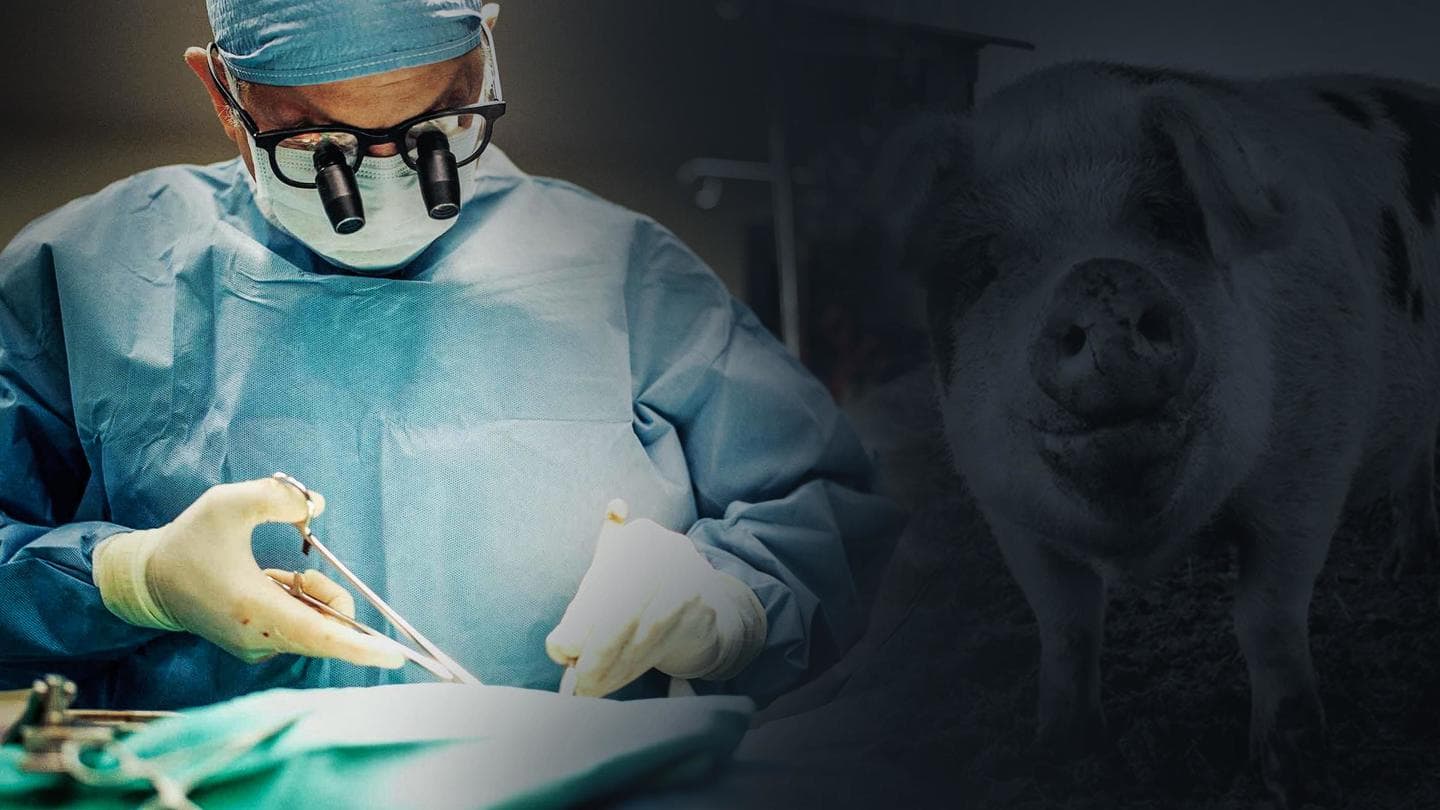
In a first, US doctors transplant pig heart into man
What's the story
In a historic first, surgeons in the United States successfully transplanted a heart from a genetically modified pig into a 57-year-old man.
The first-of-its-kind surgery took place on Friday at the University of Maryland Medical School.
The surgery was done as the patient, David Bennett, had been deemed ineligible for a human transplant due to his poor health.
Context
Why does this story matter?
The surgery is considered a breakthrough in the medical sciences and represents a milestone for animal-to-human transplantation.
It is also expected to solve the issue of the chronic shortage of organ donations. Reportedly, thousands of Americans die each year due to this shortage.
The doctors are optimistic that "this first-in-the-world surgery will provide an important new option for patients in the future."
Details
Patient recovering; under observation
Bennett was reportedly bedridden for the last few months and was on a heart-lung bypass machine.
The US Food and Drug Administration (FDA) had granted emergency authorization for the surgery on New Year's Eve.
Doctors said the patient's prognosis is still not certain.
However, he is now recovering and being carefully monitored to determine how this new organ performs.
Quote
It was either do or die: Patient
"It was either die or do this transplant. I want to live. I know it's a shot in the dark, but it's my last choice," Bennett said a day before the surgery. "I look forward to getting out of bed after I recover," he added.
Doctors
'We are proceeding cautiously'
Dr. Bartley Griffith—who surgically transplanted the pig heart—said they are "proceeding cautiously" despite being optimistic.
"This was a breakthrough surgery and brings us one step closer to solving the organ shortage crisis," he added.
Muhammad Mohiuddin—who co-founded the university's cardiac xenotransplantation (cross-species organ donation) program—said the surgery was the culmination of years of research involving pig-to-baboon transplants, with survival times that exceeded nine months.
Surgery
Surgery took 7 hours
Reportedly, the highly experimental surgery took seven hours on Friday.
Before the surgery, the donated organ was preserved in an organ-preservation machine.
Doctors also used a new experimental drug made by Kiniksa Pharmaceuticals and conventional anti-rejection drugs for suppressing the immune system.
Notably, previous such transplant attempts have failed because patients' bodies rapidly rejected the animal organ.
Genetic editing
Donor pig had undergone genetic editing
Notably, the donor pig belonged to a herd that underwent genetic editing procedures.
Ten unique genetic edits were done.
Three genes, which would have led to the rejection of pig organs by humans, and a gene that would have resulted in excessive growth of pig heart tissue were "knocked out."
Six human genes responsible for human acceptance were also inserted into the genome.
Importance
Recent pig kidney surgery paved way for transplant
The genetic editing for the transplant was performed by Virginia-based biotech firm Revivicor.
The company had notably conducted genetic editing of the pig supplied for the breakthrough kidney transplant on a brain-dead patient in New York in October.
The October surgery was a proof-of-concept experiment where the pig's kidney was connected outside the patient's body and made to work.
Organ transplant
Increasing demand of organ transplantation in US
The demand for organ transplantation is constantly rising in the US.
Official figures show around 1,10,000 Americans are currently waiting for an organ transplant.
Unfortunately, over 6,000 such patients die each year before getting an organ for transplant.
In view of this demand, doctors have long been advocating cross-species organ donation, known as xenotransplantation.
Experiments
Experiments on xenotransplantation
Experiments on xenotransplantation can be traced back to the 17th century.
Early research focused on harvesting organs from primates such as baboons, but it had failed to yield desired results.
Pigs make ideal donors because of their size, rapid growth, and large litters. Further, they are already raised as a food source.
Currently, pig heart valves and skin are widely used in humans.